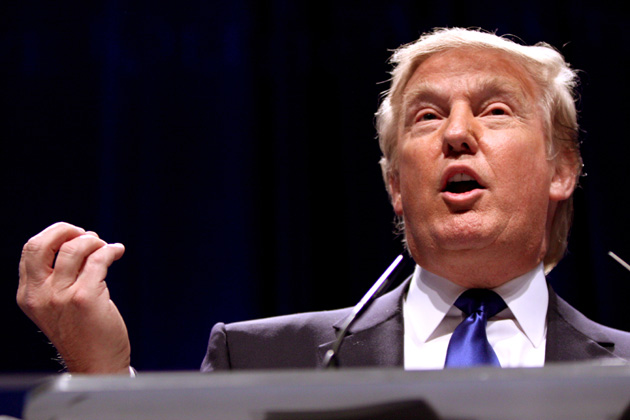
By Laurie Bergner
People either love Donald Trump or hate him, or at least hate what he stands for, which ishatred and prejudice. He says all the politically incorrect things that many believe but until now could not say.
In discussing prejudice, let’s first define what it is. The dictionary says it comes from a Latin word meaning to pre-judge, or to judge in advance; that is, “a negative attitude towards a group of people based on such things as race, religion, ethnic group or gender,an attitude that is not based on direct knowledge or experience.”
So here’s the thing. Donald Trump is not the only prejudiced person around. Nor are his followers the only other prejudiced people in the country. I believe that every single one of us is prejudiced. It seems to be in our DNA as human beings that we judge, and that means at times judging unfairly. And part of that is that we like to look down on others, that we like to feel better than them.
There is much research that shows that people have a natural tendency to stay with their own groups and to look down, even with no particular reason, on those they see as different.
Prejudice and discrimination have existed throughout human history. Prejudice, as the story of South Pacific tells it, can be a strong emotional reaction that has been taught from a young age by family. Peer pressure may cause some prejudice, and it’s well known that prejudice increases during poor economic times. We seem to turn our anxieties, stress and anger most especially during those times toward people who appear to be different than we are.
I discovered to my shock and dismay a prejudice I had many years ago when I found myself making excuses for the poor behavior of one group of people that I encountered while traveling, while strongly condemning the very same behavior I found in another country. But truly, we all make judgments and assumptions about people. It’s part of being human to make assumptions and judgments, and they aren’t limited to real life experience. We learn, whether rightly or wrongly, in many ways – from what others tell us, from TV and books, and from the prejudices of our culture – because all countries have prejudices, although the targets of those prejudices vary from country to country.
Rather than hate ourselves or others for this, the important thing is to recognize our own prejudices and work against them. We can try to be open to learning more about whatever it is we are prejudiced against, and very importantly, try our hardest not to act on these prejudices. This is the thing that is most upsetting about Trump: instead of working for fairness and good relations, he appears to crow proudly about hatred and encourages acting on it. It is not prejudice in itself but the acceptance and acting on it that is so damaging. It is part of what has made our country great that we believe in fair and equal treatment of all, and continue to work toward it, even if we still have so far to go, and even if we will never achieve that golden goal.
Laurie Bergner is a clinical psychologist in private practice, working with individual adults, families and couples. She also works with the nonpartisan League of Women Voters, helping organize candidates forums, educational programs, and many issues in the field of law and justice. She has received many recognitions in both fields, including YWCA’s Women of Distinction in the Professions, Leaguer of the Year, LWV Special Project Awards, and the LWV of Illinois’s prestigious Carrie Chapman Catt award. Laurie has a wonderful husband and two grown children – also wonderful. She loves biking in the countryside, reading, and traveling.
The opinions expressed within WJBC’s Forum are solely those of the Forum’s author, and are not necessarily those of WJBC or Cumulus Media, Inc.






